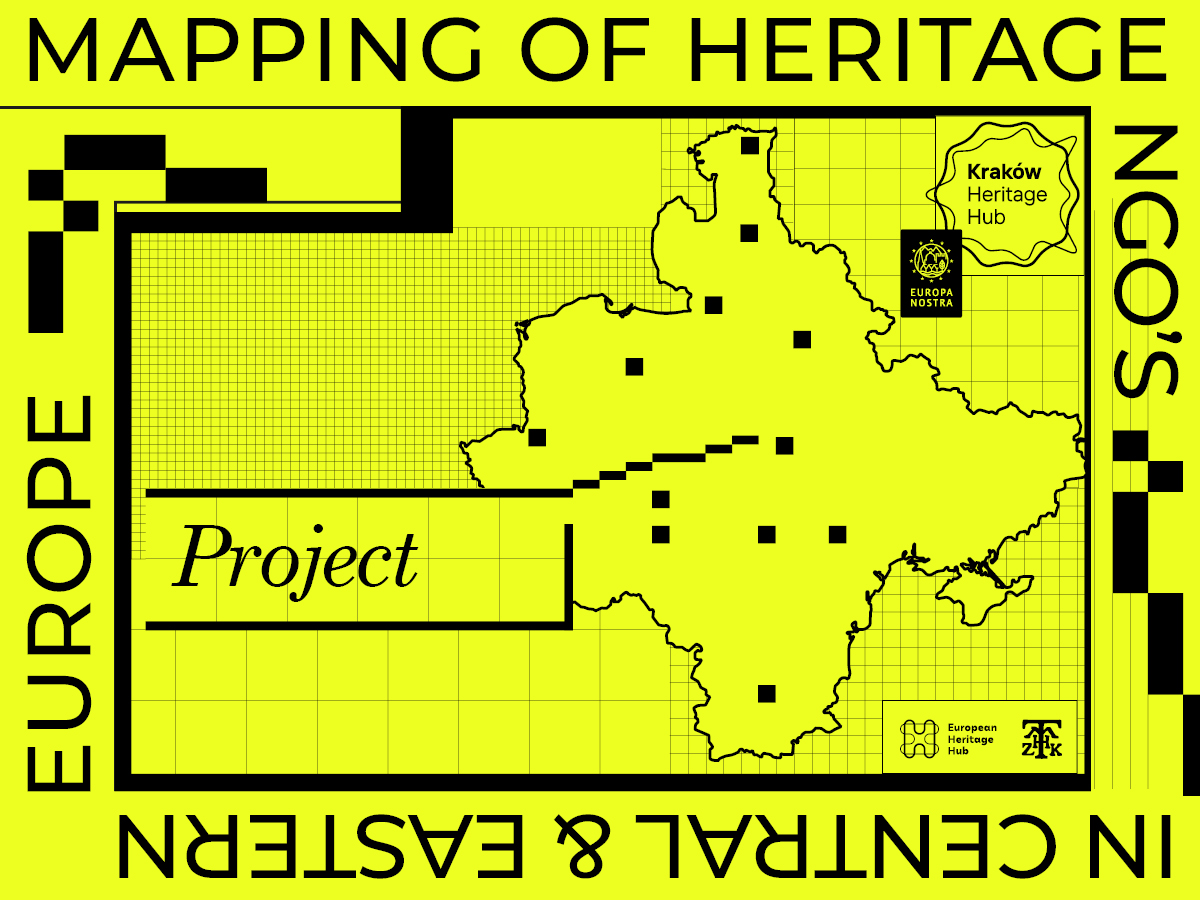
The non-governmental sector dealing with heritage in Central and Eastern Europe is not thoroughly analysed. To our knowledge there is no study on its size, types of activities or challenges it faces in different countries of the region. For Europa Nostra to fulfill its mission of being the voice of the heritage organisations from across Europe and for the Europa Nostra Heritage Hub in Kraków to develop, detailed knowledge of the sector is indispensable.
Central and Eastern Europe (Czechia, Belorussia, Estonia, Hungary, Latvia, Lithuania, Poland, Slovakia, Ukraine) falling into scope of Europa Nostra Heritage Hub in Kraków activities + Bulgaria and Romania as part of the former Communist bloc, sharing similar history and its consequences for the non-governmental sector.
The aim of the study is to build knowledge about the heritage sector in the region, including its size, main interests and activities, the diversity of countries, the challenges they face, needs, and expectations. As a result, a report will be prepared along with recommendations and a methodology for further analysis of the non-governmental sector dealing with heritage in other parts of Europe. The intention is to repeat the mapping every two years to keep track of the changes in the sector.
Using the concept of triangulation, the research will combine several methods to increase credibility and validity of the results, including:
To overcome a potential problem of a language barrier, there will be experts appointed in each of the countries to facilitate data collection and contacting local NGOs.
For the purposes of the project, we developed and adopted the following definition of heritage and the non-governmental heritage organisation:
Heritage definition
”Heritage is a part of our cultural DNA. It tells us who we were and who we are today”.
[Thorbjorn Jagland, Secretary General of the Council of Europe].
There is no unique definition of heritage (nowadays). However, there is a global consensus that heritage meanings, values, and uses are ever evolving, especially based on recognising the significance of cultural and natural heritage for societies. This aspect is crucial for the Faro Convention 2005, which emphasizes the need to define heritage itself, in response to major changes in society. Article 2 explains heritage as “a group of resources inherited from the past which people identify, independently of ownership, as a reflection and expression of their constantly evolving values, beliefs, knowledge, and traditions. It includes all aspects of the environment resulting from the interaction between people and places through time.”[1]. For the purposes of this project, we adopt this open concept of heritage that has no limits of time (it is not simply about the past, it is vitally about the present and future), form, or manifestation. It contains both the tangible and intangible, natural and cultural, and movable and immovable attributes of communities. Understood more as a set of dynamic socio-cultural processes, it involves continual creation and transformation. Furthermore, we follow the three components of the European Heritage Strategy for the 21st Century: social (citizenship participation and participatory governance); sustainable development (territorial and economic); knowledge and education (covering awareness raising, training, and research). These approaches create new ways to ensure heritage resilience and sustainability, recognising that this is not simply the preoccupations of the experts and a matter for top-down, state-led action, but that what is required is a bottom-up, people driven approach.
[1] Council of Europe Framework Convention on the Value of Cultural Heritage for Society. Faro, 27.10.2005 Council of Europe Treaty Series – No 199.
Heritage NGO definition
A multidimensional civil steward of heritage; a non-governmental organisation in the field of heritage whose activities make an important contribution to the protection, management, and promotion of cultural and natural heritage, tangible, intangible, and digital, on a local, national, international, or intercultural level. Its multifaceted efforts extend across various domains, from restoration and documentation, research, education, and capacity building, developing heritage values awareness, and guarding of cultural identity, (re)interpreting and using heritage, engaging and empowering communities to advocacy, broking, and rallying support for heritage policy changes.